Integrating Mock Interviews into the Classroom
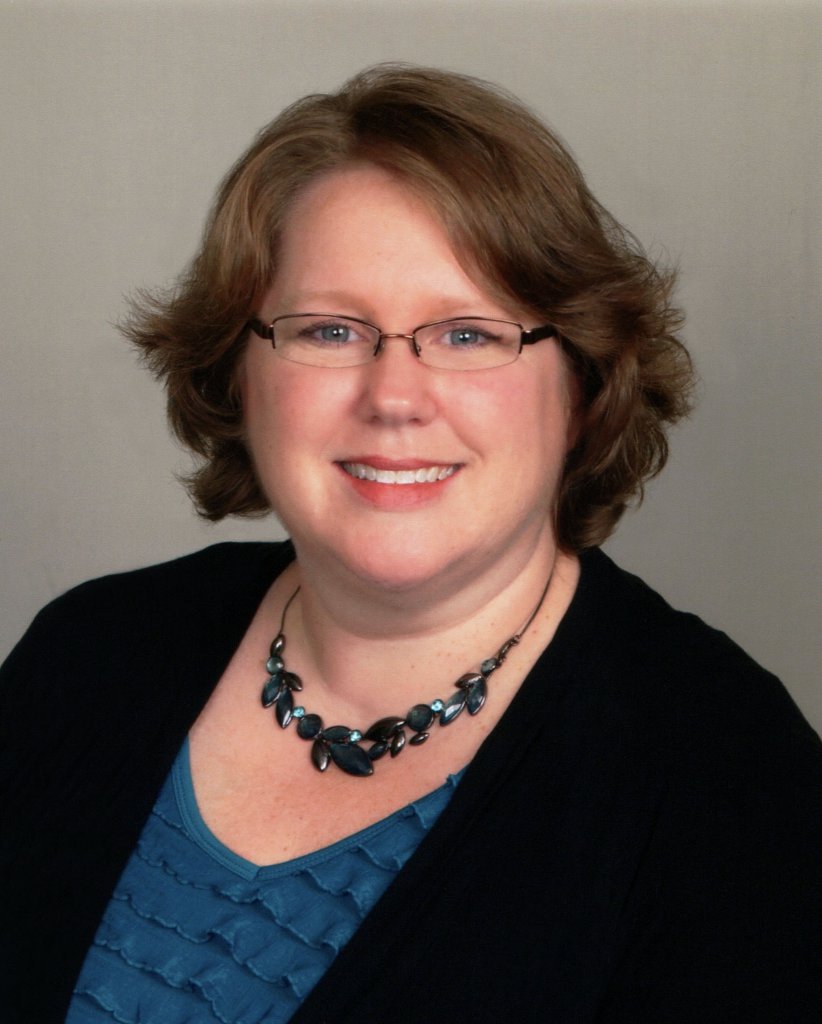
Kristina Tollefson, M.F.A.
Coordinator, Undergraduate Studies
Costume & Make-Up Design
As a costume designer, I teach my students that it doesn’t matter how good the design is on paper if what the designer has drawn can’t be made because there isn’t enough time or there isn’t enough money, or because we havenu2019t yet figured out how to defy physics. The costume is only a good costume if we can create the costume, and it functions while the actor is wearing it. It has to fit the actor’s body, help support the story being told, and the actor needs to physically be able to do the required action of the play. It might be a beautiful drawing of a costume in the rendering, but if it doesn’t make it to the stage, it wasn’t a good design.
A student’s education is similar. While I certainly support learning for learning’s sake, most students are at the university so that when they graduate they can get a job. The content and skills that students learn don’t do them much good if they don’t also have the skills necessary to search for and get a job. Yet so many programs teach content without also providing the skills necessary for employment. Even before I came to UCF 19 years ago our department has had classes for our BFA majors called Theatre Careers. These courses, segmented by specializations, teach students the skills necessary to conduct a job search in their field, to interview or audition for that job, to know what salary they need to survive, and many, many other topics.
Of all of these experiences, the one that students universally say is one of the most helpful is the mock interview process. While I do this activity as part of a formal class, this is an experience anyone could provide to their students even outside of the classroom setting.
I have a few hidden agendas for the mock interviews. First, I want the students to be a little scared. I think there is value in pushing through something that scares you a bit and realizing that there wasn’t really much need for that fear. My hope is that if I set up interviews with “scary strangers,” the students won’t be as scared when they are doing an interview for an actual job. Second, they need to practice answering questions in a situation that feels more real than having a conversation with me. And finally, they need to be given the chance to really screw up in a safe situation that won’t actually negatively impact their future employment prospects (although the vast majority actually do much better than they think they will).
There are three styles of interviews that I have my students practice through the mock interview process:

Telephone

Video

In Person
Each of these interview styles requires slightly different techniques, and I want my students to experience each of them in this controlled environment. The first step of this process is requiring students to write out answers to some of the most common interview questions.
Most of these are questions that cross disciplines like:
- “What do you see yourself doing five years from now?”
- “Give an example of a situation when you had to be quick in coming to a decision.”
- “What qualities do you think a successful manager or leader should possess?”
- “What are your strengths and weaknesses for this position?”
In class, we discuss the interview process and review several “dos” and “don’ts” for each interview type. After generating answers to the dozens of questions I provided them and revising them following my feedback, their first chance to practice their answers comes in an in-class role-play interview with me in front of the class. For a majority of my students, the only other interview they ever experienced was their interview to get into our program, so I want to give them a chance to practice in the relative safety of the classroom first. This format gives other students the chance to get to observe the interview process without being on the spot and gives each student the opportunity to receive feedback from the class on what they did well and what they can still work on.
After that first interview experience in class, the next step is to provide them with more realistic, yet still low stakes, opportunities to practice their interview skills. Students find or generate a job description that they believe could be a good first job for them. This requires that they search the common job postings in our field and get an idea of what people are looking for and evaluate what types of jobs they are qualified for.
I contact people in my network and ask them to volunteer to do a mock interview with my students making intentional matches. Those who live at a distance volunteer to do phone or video interviews. Those who are local do in-person interviews. I send the interviewers a letter to explain the process and expectations. The student creates their resume and cover letter for the job description they have selected and sends their materials to the interviewer (including the job description), either electronically or in hard copy (sometimes both, based on the intervieweru2019s preference). And then they wait. Sometimes the interviewers get really into their role play and intentionally do nothing with the “application” so that the student has to decide what to do. I counsel the student based on what would be appropriate for them to do were this an actual interview situation and coach them through when and how to follow up. Sometimes the interviewer is intensely assertive in following up and the student can get a bit overwhelmed. Either way, eventually the interviewer and the student connect and set an appointment for the “interview.”
I do not provide the interviewers with the list of questions I know the students are prepared for. I want the interviewer to ask the questions they would typically ask in an interview situation and let them determine the best questions to ask this student for this “job.” This ensures that the student can’t just expect questions for which they have specifically prepared, but that they have to use their preparation to answer questions that will be slightly different. For in-person interviews, students are also required to present their portfolios in disciplines for which that is an expectation. When the interview is over the student is expected to follow up with an appropriate professional thank you.
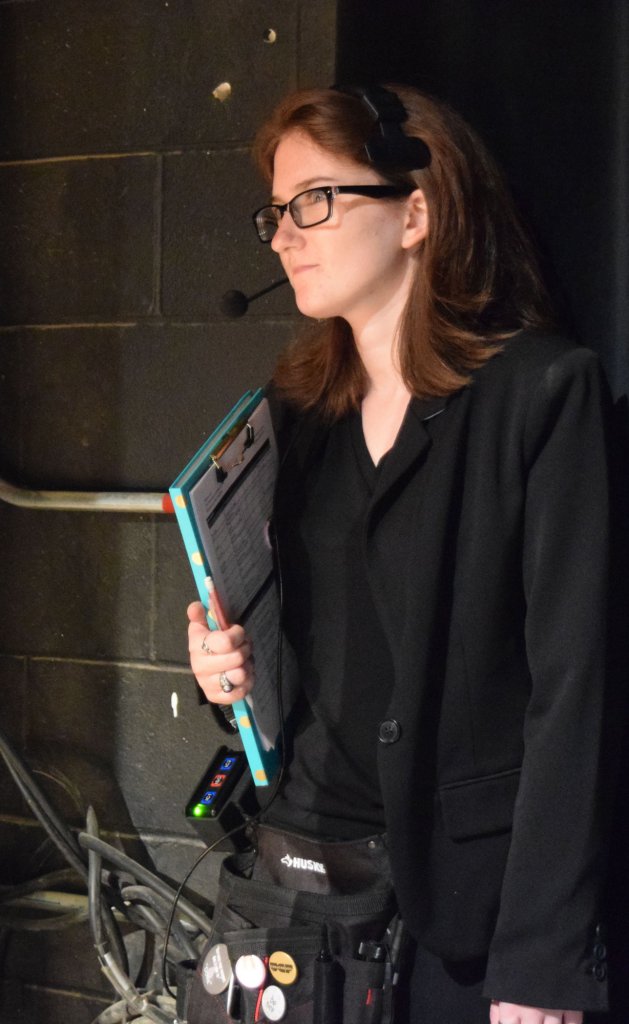
Building a Network of Interviewers
While I initially created my interviewer list with people I have worked with, over the years I have put out calls on listservs and Facebook groups and have developed a large list to draw from depending on the student’s area of interest. This allows me to personalize the interview assignments and connect students with people relevant to their goals. There are several people who do interviews for me whom I have never met, but they either saw my requests in groups or were referred by a friend. If a student has a niche interest, and I don’t have a contact on my list to draw from, I will reach out to my network again to find a person in that specialty field. The students don’t know it, but some of the people who are doing the mock interviews are actually in positions to hire people, and I want to make sure to make the right connections for everyone involved. Others are interested in serving in a mentoring role.
I’m typically scheduling 25 to 30 students at one time and each of them do three interviews. Many of the interviewers end up interviewing more than one student, but if you are arranging these experiences for one or two mentees you will have a much easier time finding multiple interviewers for them.
Sometimes at the end of the interview the interviewer will break the role play and will give the student feedback on the spot, but in addition to any one-on-one feedback, I ask the student and interviewer to fill out an evaluation form. I ask the interviewer to evaluate if the student is qualified for the position for which they “applied” and if they would get the job; I also ask them to provide feedback on their resume, cover letter, and specific interview questions. I share the feedback with the student so they can see their experience from the interviewer’s point of view.
Students fear interviews primarily because they believe irrelevant things will impact their chances of getting the job. By emphasizing that the person they are interviewing with is just a person, and they are simply having a conversation, I can help students to focus on the content of their answers and not on if they trip or sneeze in the middle of the meeting. By the time the student has completed the third interview and has received feedback from each of them, they have the self-assurance to go into an interview for an actual job with confidence that only comes from practice and solid feedback.
Student Testimonials:
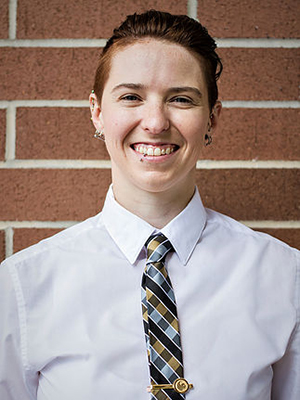
Morgan Burhoe
Universal Orlando Rigging and Staging Department
“My mock interviews were absolutely a key asset in pushing forward from college to career. Not only did I get advice and critiques from professionals in my career field, but I ended up getting hired the second I graduated by my mock interviewer. Not only did it gain me a job within my profession, it opened doors to other areas of the technical world that has allowed me to broaden my knowledge in areas I didnu2019t learn in college. The process was indescribably helpful and beneficial to becoming the professional technician that I am today. “
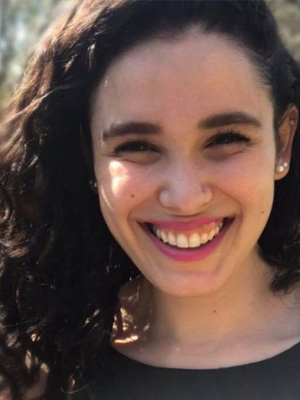
Jeana Caporelli
Assistant Event Manager for the W83 Ministry Center in NYC
“I think that the mock interviews prepared me so well for interviews both in theater and outside of theater. I’ve been on a huge number of interviews in the last two years, phone and in person, and I know that doing the mock interviews really gave me a realistic view of who I am as an interviewee. One of the things that always stuck with me from the mock interviews and the question prep assignments is that interviews are a two-way thing. I’ve had a great deal of success in interviews where I’ve been able to have a very honest and informed conversation about both myself and my understanding and expectations for the job. The mock interviews really showed me that as long as you are well prepared interviews can actually be fun and informative and set you up on a much better track to either succeed in the position or create a new contact in your network. The mock interviews definitely gave me a foundation and toolbox that’s helped me present myself in the best manner as I navigate the post UCF world.”
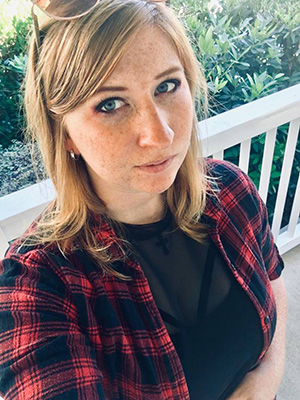
Lily Novak
Props Assistant with IATSE local 479 in Atlanta
Lily has worked on shows including: The Walking Dead, Nobody’s Fool, The Haves and the Have Nots and If Loving You is Wrong
“Kristina set me up with a mock interview that led to a job offer at the end. That job lead me to get my dream job on The Walking Dead. All thanks to those interview assignments.”